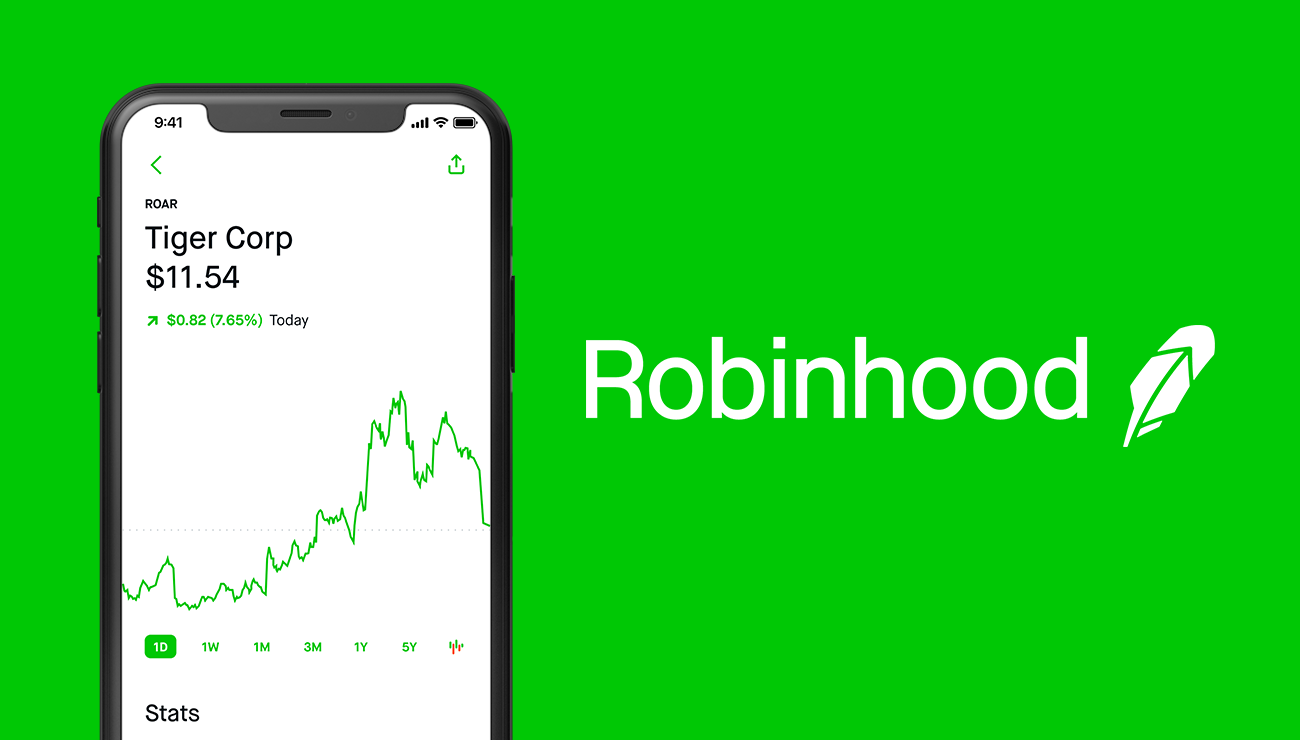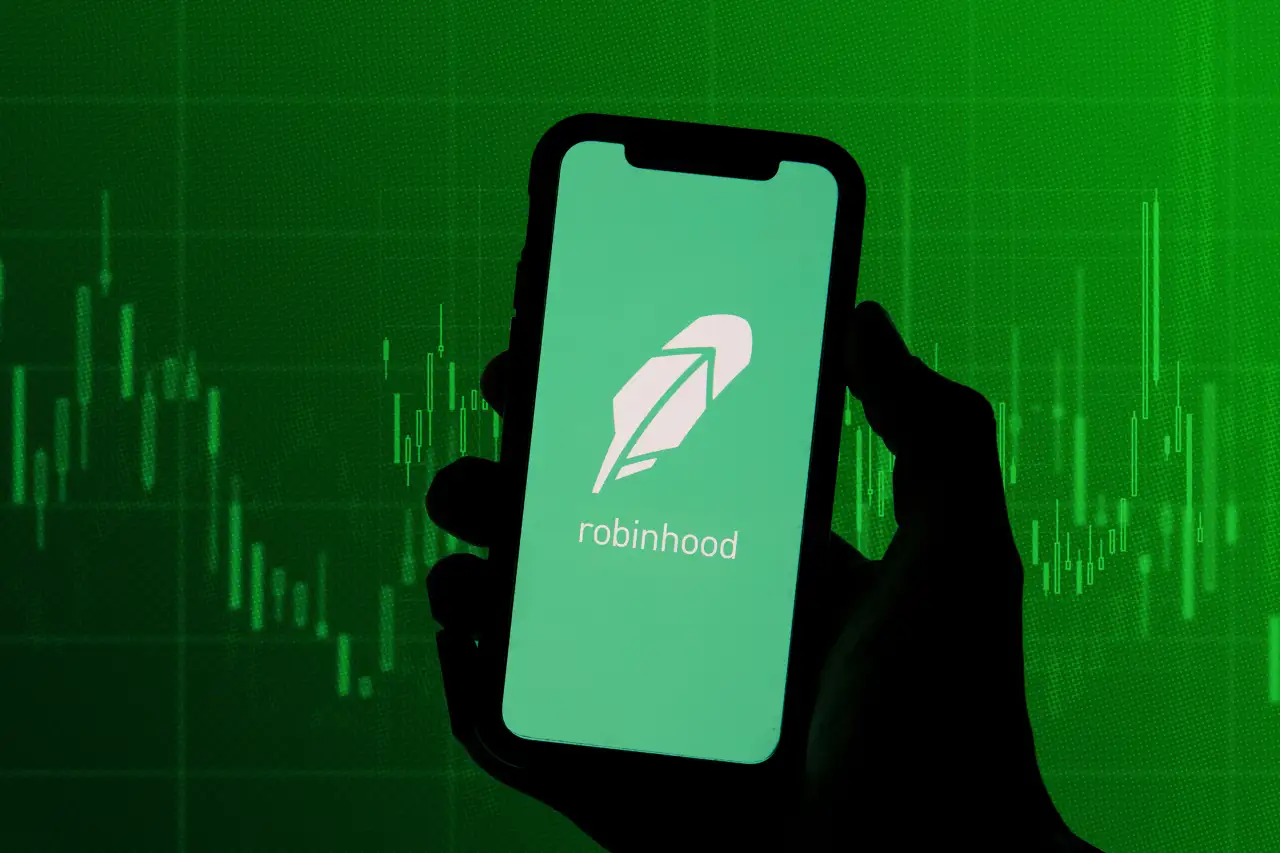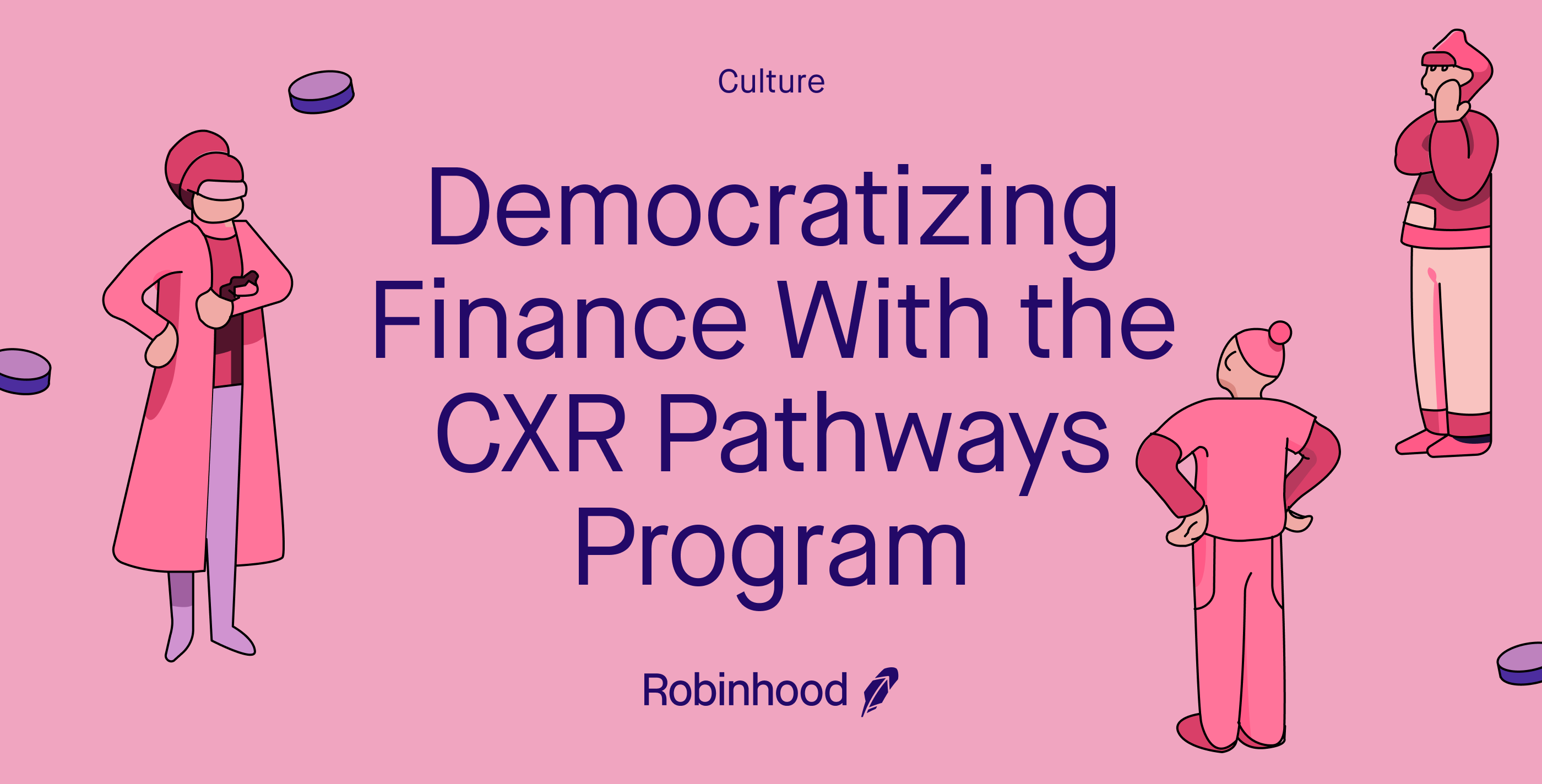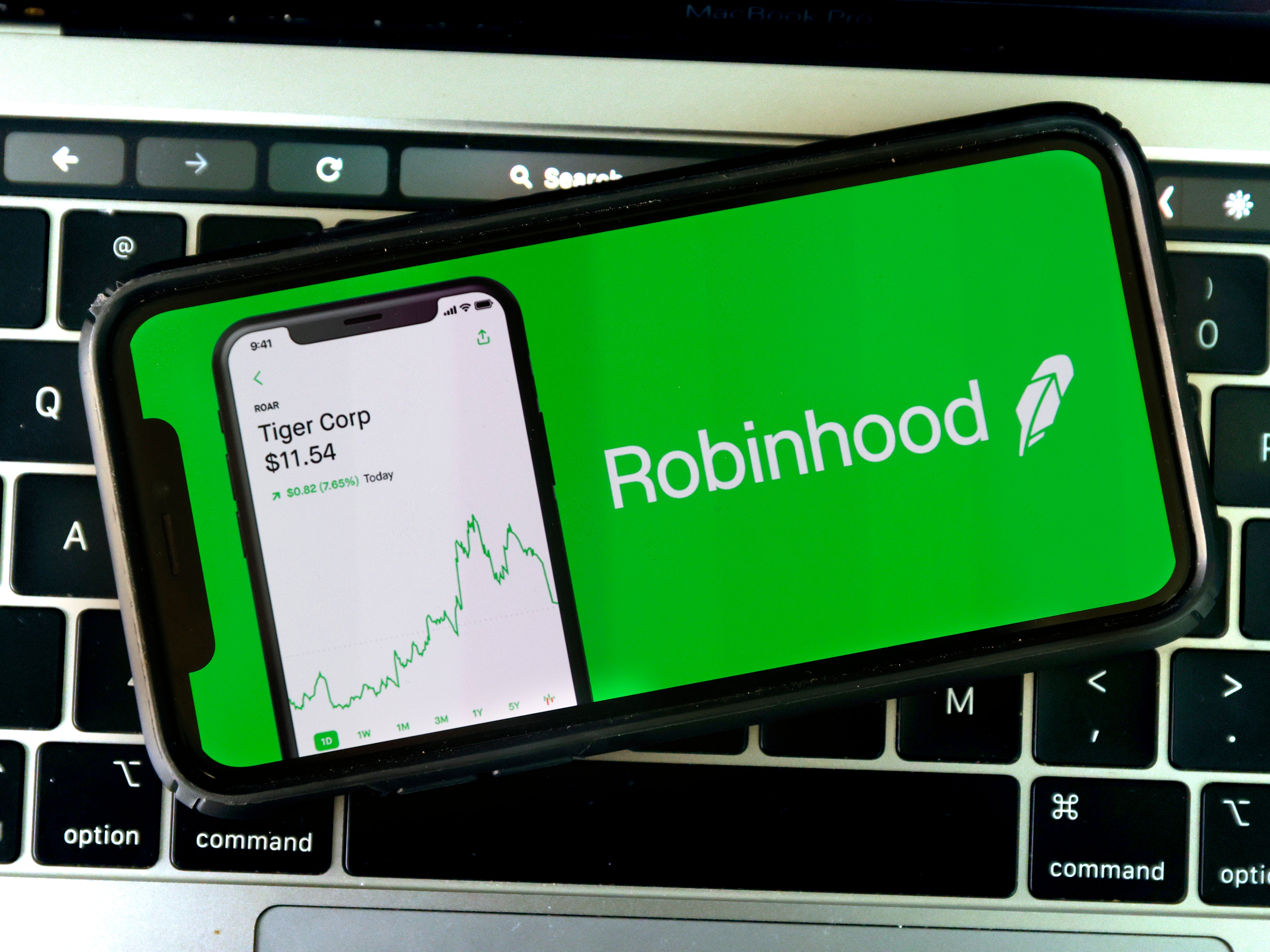Robinhood Stock Market: Revolutionizing Trading for the Masses
Introduction to Robinhood
Robinhood, founded in 2013 by Vlad Tenev and Baiju Bhatt, emerged as a disruptive force in the financial industry with its innovative approach to trading. The platform was designed to democratize access to financial markets by offering commission-free trading, a concept virtually unheard of in traditional brokerages at the time. With a sleek mobile app interface and a user-friendly experience, Robinhood quickly gained popularity, especially among young and novice investors who were previously deterred by high fees and complicated interfaces of traditional brokerage firms. This introduction of commission-free trading marked a significant departure from the traditional model, where brokerage firms relied heavily on fees for revenue. Robinhood's mission was clear from the start: to make investing accessible to everyone, regardless of their financial background or experience level. This introduction set the stage for Robinhood's rapid ascent and its transformational impact on the investment landscape.
The Rise of Commission-Free Trading
Commission-free trading, once a rarity in the brokerage industry, experienced a seismic shift with the advent of platforms like Robinhood. Traditionally, investors were accustomed to paying substantial fees for every trade executed, which could quickly erode their profits, especially for frequent traders. However, Robinhood disrupted this model by eliminating commissions entirely, allowing users to buy and sell stocks, options, and cryptocurrencies without incurring any fees. This radical departure from the norm not only attracted a new wave of investors but also compelled established brokerages to reassess their fee structures to remain competitive. The rise of commission-free trading democratized access to financial markets, empowering individuals of all backgrounds to participate in investing without the barrier of high costs. This phenomenon sparked a revolution in the industry, ushering in an era where trading became more accessible and affordable for the masses, fundamentally changing the way people approach investing.
Democratizing Financial Markets
One of the most significant impacts of platforms like Robinhood has been the democratization of financial markets. Historically, participation in the stock market and other investment opportunities was largely limited to wealthier individuals and institutional investors who had access to specialized knowledge and resources. However, Robinhood's user-friendly interface, commission-free trading model, and low barriers to entry have leveled the playing field, allowing individuals from all walks of life to engage in investing. By providing easy access to stocks, options, exchange-traded funds (ETFs), and cryptocurrencies, Robinhood has empowered a new generation of investors, including millennials and Gen Z, who may have been previously excluded or intimidated by traditional brokerage platforms.
This democratization has not only increased participation but has also diversified the investor pool, bringing fresh perspectives and ideas to the market. Additionally, the rise of social trading features on platforms like Robinhood has facilitated the sharing of investment strategies and insights among users, further democratizing access to financial information and education. However, it's important to note that democratizing financial markets also comes with its challenges, such as ensuring investor education and protection, managing risk, and navigating market volatility. Nonetheless, the overall impact of democratization has been profound, opening up opportunities for individuals to build wealth, achieve financial independence, and participate more actively in the global economy.
However, it's important to note that democratizing financial markets also comes with its challenges, such as ensuring investor education and protection, managing risk, and navigating market volatility. Nonetheless, the overall impact of democratization has been profound, opening up opportunities for individuals to build wealth, achieve financial independence, and participate more actively in the global economy.
Features and Tools Offered by Robinhood
Robinhood, renowned for its simplicity and accessibility, provides a range of features and tools designed to cater to investors of all levels of experience. One of its standout features is its intuitive mobile app interface, which allows users to trade stocks, options, ETFs, and cryptocurrencies with ease directly from their smartphones. The platform's commission-free trading model ensures that investors can buy and sell securities without incurring any fees, making it particularly attractive to those seeking to minimize costs.
Beyond commission-free trading, Robinhood offers a suite of tools to help users make informed investment decisions. These include:
- Market Data and News: Robinhood provides real-time market data and news updates, enabling users to stay informed about the latest developments in the financial markets.
- Watchlists and Alerts: Users can create custom watchlists to track their favorite stocks and receive alerts for price movements, earnings announcements, and other significant events.
- Fractional Shares: Robinhood allows investors to purchase fractional shares of stocks and ETFs, enabling them to invest in high-priced securities with as little as $1.
- Investment Research: While Robinhood's research offerings may be more limited compared to traditional brokerages, it provides basic company information, analyst ratings, earnings reports, and historical price data to help users conduct fundamental analysis.
- Robinhood Gold: For a monthly fee, Robinhood Gold offers additional features such as margin trading, extended trading hours, and access to professional research reports from Morningstar and NASDAQ.
 Overall, Robinhood's user-friendly interface and comprehensive suite of features have contributed to its popularity among both novice and experienced investors, cementing its position as a leading player in the fintech space.
Overall, Robinhood's user-friendly interface and comprehensive suite of features have contributed to its popularity among both novice and experienced investors, cementing its position as a leading player in the fintech space.
Challenges and Criticisms
Despite its rapid growth and popularity, Robinhood has faced its share of challenges and criticisms, ranging from technical glitches to regulatory scrutiny.
- Technical Issues: Robinhood has experienced several high-profile outages and technical glitches, especially during periods of high market volatility. These disruptions have left users unable to access their accounts or execute trades, leading to frustration and loss of confidence in the platform.
- Lack of Investor Education: While Robinhood has made investing more accessible, critics argue that the platform lacks robust educational resources to help users navigate the complexities of the financial markets. This deficiency in investor education can potentially lead to uninformed investment decisions and increased risk-taking behavior.
- Payment for Order Flow: Robinhood generates a significant portion of its revenue by selling order flow to market makers and high-frequency trading firms. Critics argue that this practice may result in inferior execution prices for customers and conflicts of interest between Robinhood and its users.
- Gamification and Behavioral Concerns: Robinhood has been criticized for its gamified features, such as confetti animations and push notifications, which some argue may encourage excessive trading and speculative behavior among users, particularly inexperienced investors.
- Regulatory Scrutiny: Robinhood has come under scrutiny from regulators regarding its business practices, including its handling of options trading, advertising tactics, and compliance with industry regulations. In December 2020, the Securities and Exchange Commission (SEC) announced that it was investigating Robinhood over potential violations related to its options trading practices and disclosures.
- Customer Service Issues: Robinhood has faced criticism for its customer service shortcomings, with users reporting difficulties in reaching support representatives and receiving timely assistance with account-related issues.
:max_bytes(150000):strip_icc()/rh1-1c698668d9e94d76b4bcedbaf9ce2966.jpg) Overall, while Robinhood has played a significant role in democratizing investing, addressing these challenges and criticisms will be crucial for the platform to maintain trust and credibility among its user base and regulators.
Overall, while Robinhood has played a significant role in democratizing investing, addressing these challenges and criticisms will be crucial for the platform to maintain trust and credibility among its user base and regulators.
Regulation and Legal Issues
As Robinhood has disrupted the traditional brokerage industry and gained widespread popularity, it has also found itself under increased regulatory scrutiny and facing various legal challenges.
- Compliance with Regulatory Requirements: Robinhood operates in a highly regulated industry, subject to oversight by agencies such as the Securities and Exchange Commission (SEC), the Financial Industry Regulatory Authority (FINRA), and state regulators. Ensuring compliance with these regulatory requirements is crucial for Robinhood to maintain its operating license and avoid potential fines or legal penalties.
- Payment for Order Flow (PFOF): One of the most contentious issues surrounding Robinhood is its practice of selling order flow to market makers and high-frequency trading firms. While this practice is legal and common among brokerages, it has raised concerns about potential conflicts of interest and whether it provides the best execution for customers' trades. Regulators continue to monitor this practice closely to ensure that it complies with relevant regulations and does not harm investors.
- Options Trading and Risk Disclosures: Robinhood has faced criticism and legal action related to its options trading features and the adequacy of its risk disclosures. In particular, there have been concerns about inexperienced investors engaging in options trading without fully understanding the risks involved. Regulators have scrutinized Robinhood's options trading platform and its disclosures to ensure that they are transparent and adequately warn users of the potential for significant losses.
- Anti-Money Laundering (AML) and Know Your Customer (KYC) Compliance: Like all financial institutions, Robinhood is required to comply with anti-money laundering and know your customer regulations to prevent illicit activities such as money laundering and terrorism financing. Ensuring robust AML and KYC procedures is essential for Robinhood to maintain the integrity of its platform and prevent misuse by bad actors.
- Data Privacy and Security: With the increasing digitization of financial services, data privacy and security have become paramount concerns. Robinhood must adhere to stringent data protection regulations and implement robust cybersecurity measures to safeguard users' sensitive information from unauthorized access or breaches.
 Navigating these regulatory and legal challenges is crucial for Robinhood to sustain its growth trajectory and maintain the trust and confidence of its user base and regulators alike. Compliance with applicable laws and regulations not only mitigates legal risks but also reinforces Robinhood's reputation as a responsible and trustworthy financial platform.
Navigating these regulatory and legal challenges is crucial for Robinhood to sustain its growth trajectory and maintain the trust and confidence of its user base and regulators alike. Compliance with applicable laws and regulations not only mitigates legal risks but also reinforces Robinhood's reputation as a responsible and trustworthy financial platform.
Conclusion: Redefining Access to Financial Markets
In conclusion, Robinhood has undeniably redefined access to financial markets, ushering in a new era of democratization and empowerment for individual investors. By introducing commission-free trading and offering a user-friendly mobile platform, Robinhood has broken down barriers that once deterred many from participating in investing. Its innovative approach has attracted a diverse user base, including young and first-time investors, who now have the opportunity to build wealth and achieve financial goals previously out of reach.
My Other Articles
Understanding the Cosmos Ecosystem
Unraveling the Layers: Exploring the Significance of Layer 2 in Networking Technologies
Exploring the World of GameFi and its Impact on the Future of Gaming
Exploring the World of Binance: A Comprehensive Overview
Understanding Layer 1 Blockchain



















































